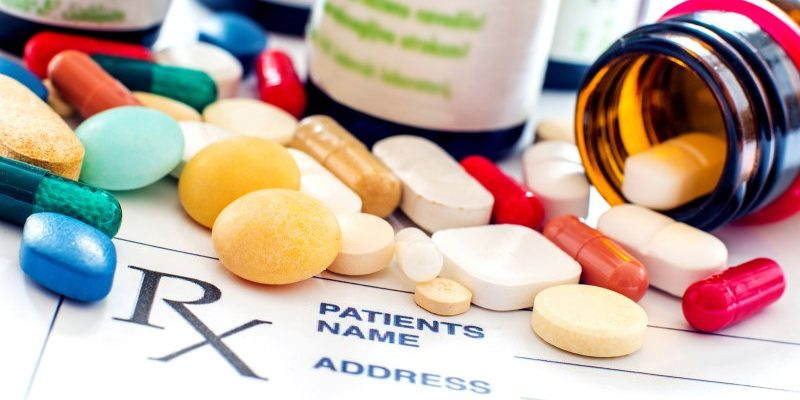
About Lincomycin
Lincomycin belongs to a group of medicines known as 'antibiotics'. It is used to treat various bacterial infections of the respiratory system (like pneumonia, bronchitis, tonsillitis, pharyngitis, and sinusitis), skin, ear infections, and sexually transmitted infections. Bacterial infection is a condition in which bacteria grows in the body and cause infection. It can target any body part and multiple very quickly.
Lincomycin slows the growth or sometimes kills the harmful bacteria by preventing the production of proteins required by the bacteria for its survival. Lincomycin does not treat a viral infection like flu or a common cold.
Lincomycin will be administered by a healthcare professional; do not self-administer. In some cases, you may experience dizziness, headache, indigestion, vaginal inflammation, stomach pain, retching (nearly vomit), or rash with redness of the skin. Most of these side effects of Lincomycin do not require medical attention and gradually resolve over time. However, if the side effects persist or worsen, please consult your doctor.
If you are allergic to Lincomycin or any other medicines, please tell your doctor. If you are pregnant or breastfeeding, please inform your doctor before taking Lincomycin. Lincomycin is contraindicated in patients with severe kidney problems and patients undergoing hemodialysis (a process of purifying blood by filtering out extra fluids and wastes when kidneys are not working). If you notice blood in stools or have severe stomach pain with diarrhoea, contact your doctor immediately. If you have high blood pressure, hypernatraemia (high levels of sodium in the blood), hyperaldosteronism (excessive production of aldosterone hormone), pulmonary oedema (accumulation of fluid in the lungs), kidney or heart problems, inform your doctor before taking Lincomycin.
Uses of Lincomycin
Medicinal Benefits
Lincomycin slows the growth or sometimes kills the harmful bacteria by preventing the production of proteins required by the bacteria for its survival. It prevents and treats bacterial infections like throat and sinus infections, chest infections (like bronchitis and pneumonia), ear infections, mouth and dental infections, eye infections, skin and tissue infections (like acne), stomach and intestinal infections. It is better tolerated and has more effective tissue penetration compared to other similar antibiotics like erythromycin. Doctors prescribe Lincomycin for people who are intolerant of penicillin antibiotics. Besides this, it also helps prevent infection following burns, surgery or dental procedure, sexually transmitted infections, bone infections, or scarlet fever (bacterial illness with strep throat).
Directions for Use
Storage
Side Effects of Lincomycin
- Dizziness
- Headache
- Indigestion
- Stomach pain
- Vaginal inflammation
- Retching (nearly vomit)
- Rash with redness of the skin
Drug Warnings
Tell your doctor if you have liver problems (jaundice), muscle problems (myasthenia gravis), heart rhythm disorder (arrhythmia), electrolyte imbalance (low potassium or magnesium level). In rare cases, the use of Lincomycin can cause diarrhoea, so if you have watery or bloody diarrhoea, stop taking Lincomycin and call your doctor. However, do not take any anti-diarrheal medicine until your doctor tells you. It is not known whether Lincomycin harms a baby in pregnancy or not. Consult your doctor if you are pregnant, planning for pregnancy, or breastfeeding before using Lincomycin. Do not take Lincomycin if you are allergic to Lincomycin or other macrolide antibiotics, using cholesterol-lowering drugs (statins like simvastatin, lovastatin, etc.), anti-gout or anti-arthritis drugs (colchicine), and medicine for treating overactive bladder (tolterodine). Lincomycin is not recommended for patients with pneumonia who are judged to be inappropriate for oral therapy due to moderate to severe illness or risk factors.
Drug Interactions
Drug-Drug Interactions: Lincomycin have interactions with anti-nausea pills (domperidone), mental health pills (pimozide, amisulpride), anti-migraine medicines (ergotamine, dihydroergotamine), anti-cholesterol pills (simvastatin), bladder weakness medicine (tolterodine), and anti-gout/arthritis medicine (colchicine). Taking these drugs with Lincomycin may cause serious side effects.
Drug-Food Interactions: No relevant drug-food interaction was found with Lincomycin. As a precautionary measure, the consumption of alcoholic beverages should be avoided as it may lead to drowsiness and dizziness.
Drug-Disease Interactions: Lincomycin should not be given to people with liver problems, muscle problems (myasthenia gravis), heart rhythm disorder (arrhythmia), electrolyte imbalance (low potassium or magnesium level), and colitis (inflammation of the intestine).

